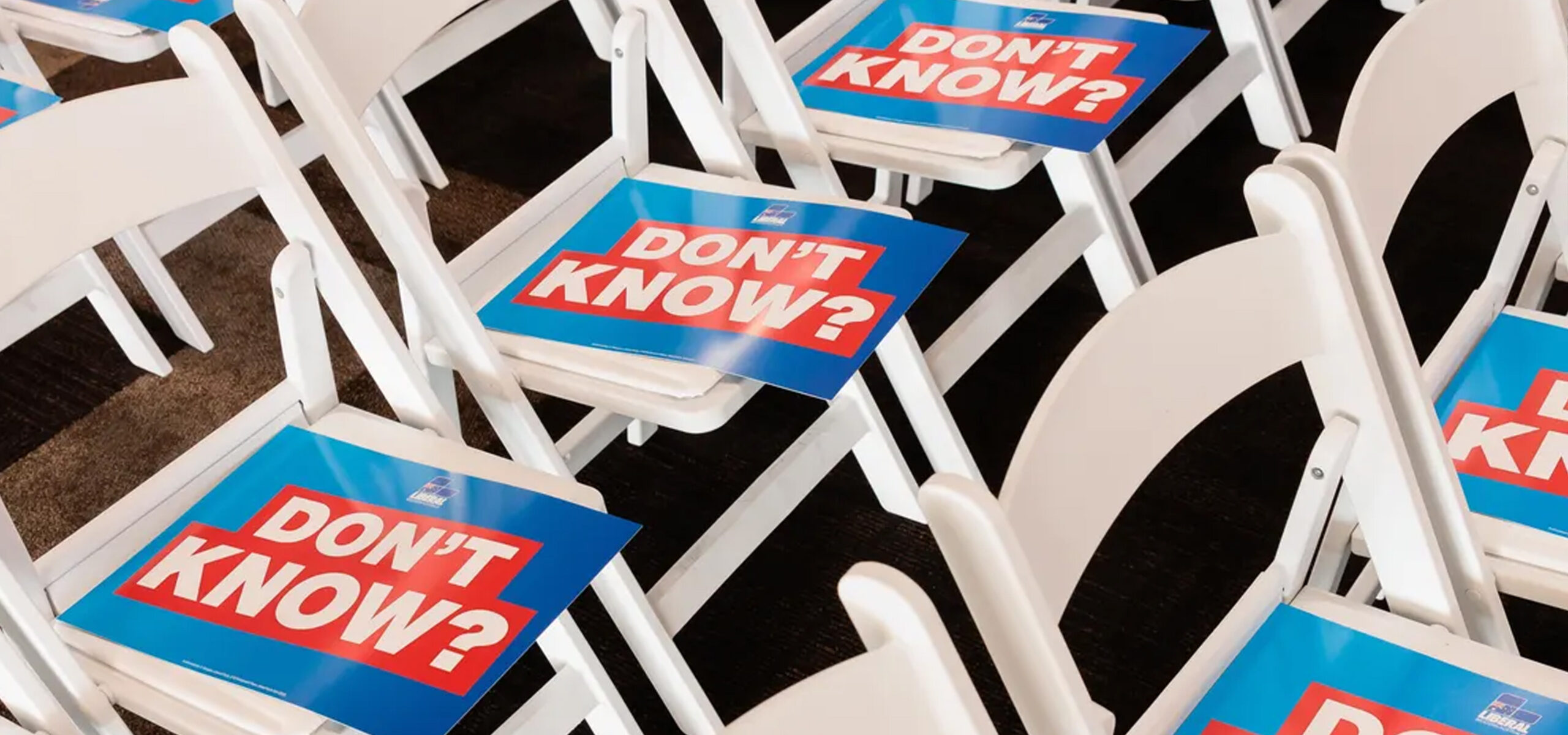Ignorance is not bliss. It’s irresponsible.

So much is going on in the world right now that it’s easy to overlook the fact that Australia is only days away from making one of the biggest constitutional decisions for Indigenous Rights in its history. In just a few days, the country will vote on whether to recognise the First Peoples of Australia by establishing an Aboriginal and Torres Strait Islander Voice to parliament. Our aim here is to shine a light on the underlying psychology that influences political voting behaviour across the globe.
In a nation where compulsory voting compels even the most disengaged to participate, the Australian Liberal-led camp has tactfully revived a slogan used in the 1999 referendum to great effect:
“If you don’t know, vote no.”
What may sound like a simple campaign strategy on the surface, is actually weaponising ignorance. The slogan’s core message discourages individuals from actively seeking knowledge or engaging meaningfully in the democratic process. It implies that it’s acceptable to cast a vote based on pre-existing biases or uninformed opinions rather than taking the time to explore the complex issues at hand. A Guardian columnist may have jokingly retorted that ‘Not since “axe the tax” and “stop the boats” have we been blessed with messaging of the same cerebral depth’, but the sad reality is that this messaging – which is openly backed by Australia’s opposition leader, Peter Dutton – is likely to have had a huge impact on Australian voters’ decisions.
Psychological research has unearthed an intriguing phenomenon that compels individuals to cling to ignorance or a narrow-minded perspective. This inclination to remain uninformed can be driven by a variety of factors, such as cognitive dissonance, the fear of confronting contradictory information, and the allure of simplicity over complexity in decision-making. A famous study from 2017 presented participants with two options: they could either engage with and respond to questions about a viewpoint they already supported (related to the topic of same-sex marriage) or explore an opposing perspective. Unsurprisingly, the majority (63%) of participants chose to stick to their existing beliefs, despite the higher financial incentive at stake.
This highlights a broader societal challenge, where, in the face of an information-rich world, there is a prevalent trend towards opting for a convenient, albeit ill-informed, stance on complex issues. This undermines our ability to make great decisions. It is also not unique to any one nation but is a global phenomenon that contributes to polarisation, the perpetuation of biases, and a lack of well-informed decision-making.
At the heart of this challenge lies our inherent cognitive biases, compelling us to seek and consume information that aligns harmoniously with our pre-existing beliefs, thereby reinforcing the viewpoints we already hold. This natural tendency is further exacerbated by the ubiquitous presence of algorithms and recommendation systems in our digital landscape, which tend to further insulate us within our familiar perspectives.
So, what can you do to avoid falling into the trap of ignorance?
Play both sides. Deliberately challenge your own beliefs by putting yourself in the shoes of those who disagree. Try to argue things from their perspective. Rigorously test your own views against the strongest opposing arguments.
Escape the echo chamber. Diversify your information sources by actively seeking out alternative perspectives. This helps you gain a more comprehensive and nuanced understanding of complex issues, thereby helping you to make better decisions.
Self-reflect. Regularly assess your own thought processes and biases. Cultivate self-awareness and critical thinking skills to recognise and confront your own assumptions and nurture your inner curiosity that drives you to explore beyond your comfort zone.
In order to thrive in a complex and changing world, it is crucial for leaders to be proactive in overcoming the ignorance trap, despite the psychological biases that can get in the way. It is also important for them to encourage curiosity, open mindedness and critical thinking among the people they lead to further enhance the quality of collective decision making.
The ‘no’ campaign in Australia, fuelled by passivism (not to mention fear-mongering and misinformation), is a failure of political leadership. When the costs of acquiring knowledge outweigh the benefits of possessing it, yes, ignorance is bliss. But when people in power wilfully encourage the ignorance of a nation at the cost of education, individual empowerment and democratic integrity, ignorance is deeply irresponsible. And the real tragedy is that these leaders and their ‘no’ voters won’t be the ones who bear the cost of that ignorance.

